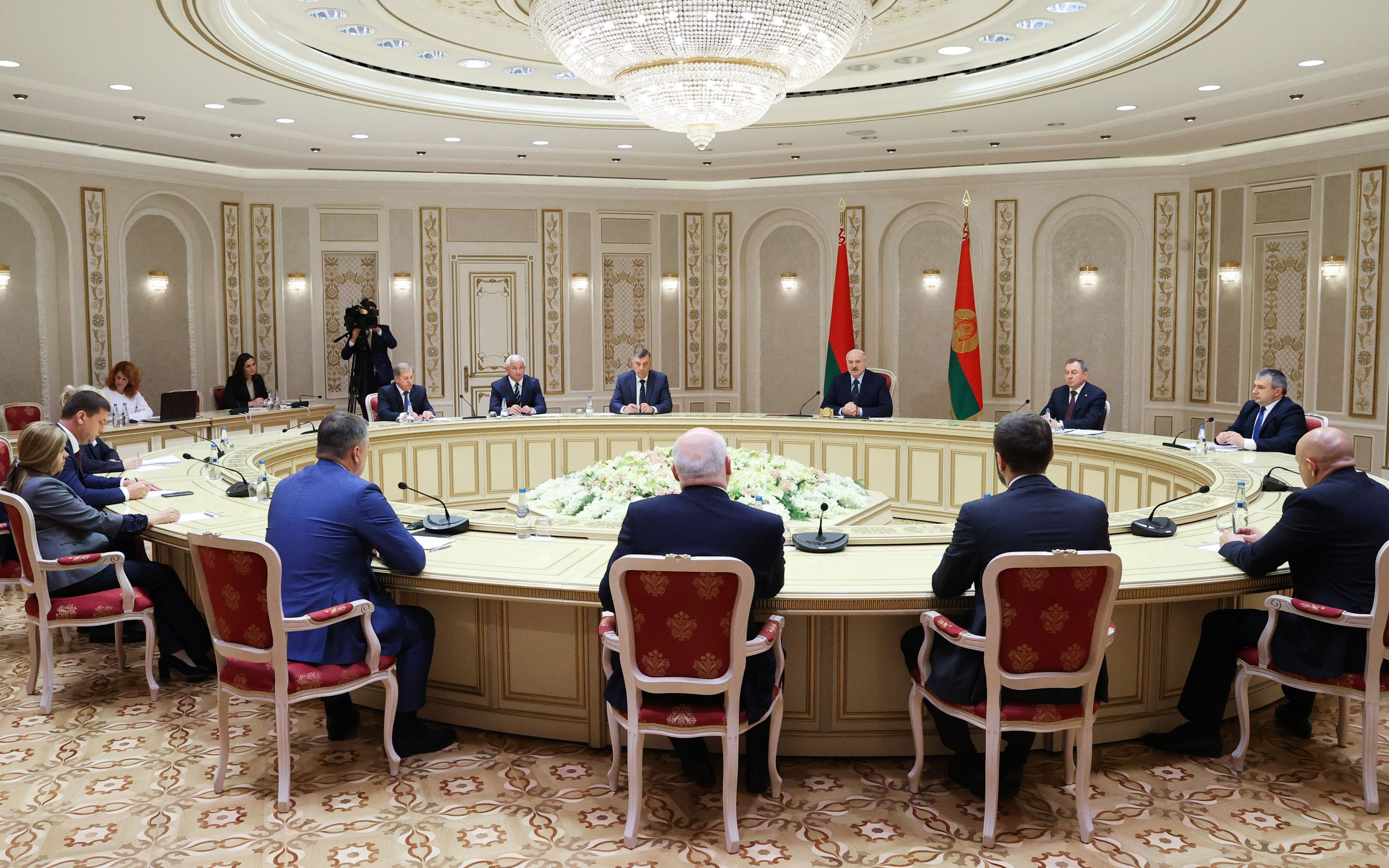Belarus-Russia: Towards Gradual Integration

The mass post-election protests and resulting crisis in Belarus have made Lukashenka fear he will lose power, and in turn, he has sought support from Russia. Within a few weeks, numerous bilateral visits by representatives of both countries took place, including a meeting of the two presidents in Sochi. Although no official decisions were announced after these meetings on deepening integration, Russia is clearly intensifying its efforts to tighten the course, primarily in the economic sphere. If Russia succeeds in carrying out this scenario, Belarus will have only superficial sovereignty. Its authorities will be more limited than now in conducting foreign and security policy, which will adversely affect the possibility of developing relations with neighbouring countries, including Poland.
Russia’s Goals
Belarus is key to Russia’s foreign and domestic policy. The Russian authorities fear that any democratic changes in Belarus may become an incentive for Russian society to undertake similar attempts. In turn, a change of vector in Belarusian foreign policy to a pro-Western one probably would mean the end of Russian integration projects in former Soviet territory and is perceived by Russia as attempts at destabilisation and interference by the West in the region (after Georgia and Ukraine). Therefore, Russia wants to gain permanent instruments of influence over Belarus that will allow it to control the way the Belarusian authorities conduct their country’s internal and foreign policy.
Through its involvement in solving the political crisis in Belarus, Russia is also trying to show its foreign partners that it pursues constructive policy aimed at regional stabilisation. It also wants to demonstrate the effectiveness of its proposed model for solving international crises based on non-institutional cooperation between the strongest countries (“concert of powers”) and the division of the world into “spheres of privileged interests”.
At the same time, in their efforts to integrate with Belarus, the Russian authorities must consider the resistance of both societies to the absorption of the former by Russia. According to a public opinion poll carried out in Belarus by the Belarusian Analytical Laboratory in December 2019, almost 75% of respondents said that Russia and Belarus should remain independent states, and only 12.8% were in favour of increasing integration within the Union State. In turn, a study by the Russian Levada Centre in August found out that only 13% of Russians believe that Belarus should be annexed to Russia.
Most Probable Integration Scenario
Russia will not annex Belarus, as it would entail very high political, social, and financial costs and would be sharply criticised by the international community, probably including the tightening of sanctions by Western states.
The most likely scenario, therefore, is a long-term deepening of integration within the Union State, which in practice would mean that Russia will take over the most valuable economic assets of Belarus, especially enterprises from the arms and petrochemical industries, and further subordination of the Belarusian economic system. Russia is already Belarus’ largest trade partner, with a 38% share of Belarusian exports and 60% of its imports. Moreover, it accounts for 48% of Belarus’ foreign debt.
To do this, Russia will first rely on the provisions of the 1999 Union State agreement. It is gradually activating 31 “integration roadmaps” set in 2019, which assume the harmonisation of economic policies, including in customs, industry, agriculture, and energy, and rules of economic cooperation with third countries. Contracts for oil and gas supplies ending in 2020 are another tool for Russia to influence the Belarusian government.
Belarus will remain a member of the Eurasian Economic Union (EEAU), which will allow for the unification of the financial sector and building a common market. At a later stage, the integration process will include the establishment of supranational economic institutions, such as an Issuing Bank, and control institutions, such as an Audit Chamber, and the related unification of the judiciary.
The economic subordination and takeover of Belarus by Russia will be accompanied by deepening military integration at the level of the Union State and the Collective Security Treaty Organisation (CSTO). In the long term, it is possible Russia will establish new military bases in Belarus and deploy types of weapons that will significantly limit the defence capabilities of NATO on its Eastern Flank (these would be mainly missile systems, including the S-400, but also radio-electronic warfare units). Increasing the Russian military presence in Belarus will also deepen the imbalance of forces in the region, which is not in NATO’s favour. Russia will also interfere in political processes in Belarus, actively engaging in work on changes to the Belarusian constitution, announced by Lukashenka.
Consequences for Belarus
Given the high probability of the growing dependence of Belarus on Russia, the political future of the Belarusian authorities, including Lukashenka, will be almost entirely dependent on the will of the Russian authorities and President Vladimir Putin himself. At the same time, Lukashenka is not trusted by the Russian elite. The moment he ceases to guarantee the stability and security of Russian influence, Russia will replace him with a politician who more favourable to it. Thus, in the next two or three years, Russia may decide to provoke a change of president in Belarus, supporting a candidate who will guarantee the completion of the integration process. This is evidenced by, among others, the strong emphasis that the Russian authorities are already placing on holding early elections after the amendment to the Belarusian constitution.
In turn, purchases with Russian capital of the most profitable Belarusian enterprises will deprive the country of some of its main sources of revenue, which will have negative consequences for its economy.
Conclusions and Recommendations
The success of the integration plan between Russia and Belarus will mean a far-reaching limitation of Belarusian sovereignty in the next few years. The Russian actions, however, may encounter public resistance in Belarus. They may also be opposed by some Belarusian elites, fearing a loss of influence.
The scenario of the deeper integration of Belarus with Russia is not in the interests of the EU, including Poland, which seeks to maintain—if not increase—the independence of Belarus. The EU should, therefore, emphasise that the decisions taken by the Belarusian authorities to deepen integration with Russia have neither a social nor political mandate. The EU should also consistently challenge the false message of the voluntary nature and positive effects of Russia’s increasing control over Belarus.
To delay Russia's integration of Belarus, the EU may impose sanctions on Belarusian companies that are bought out with Russian capital if it is clearly illegal (e.g., when non-Russian entities are blocked from the privatisation process). At the same time, the EU and individual Member States should consistently support Belarusian civil society, especially institutions working to strengthen Belarus’ sovereignty (human rights organisations, media, trade, and religious unions). It is worth it for the EU to point out the need to include independent social and political organisations in the process of changing the constitution, especially those called for by Lukashenka.
If free and fair presidential and parliamentary elections will be held in Belarus, the EU should offer comprehensive support to the local economy and improvements in the quality of life of Belarusians using international financial and advisory institutions (IMF, World Bank, EBRD) and the support of other countries (U.S., UK, Norway). At the same time, the Member States should adopt regulations that facilitate the activities of private Belarusian businesses in the EU.



